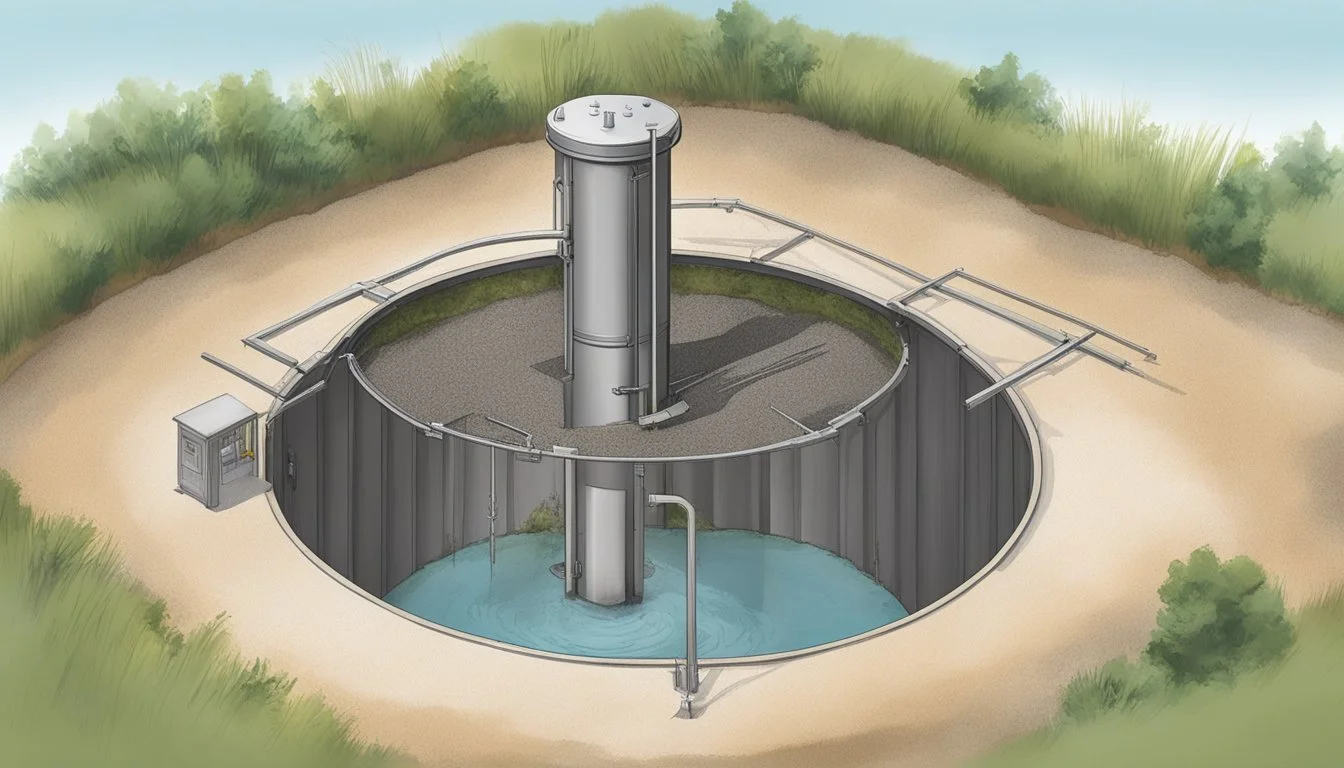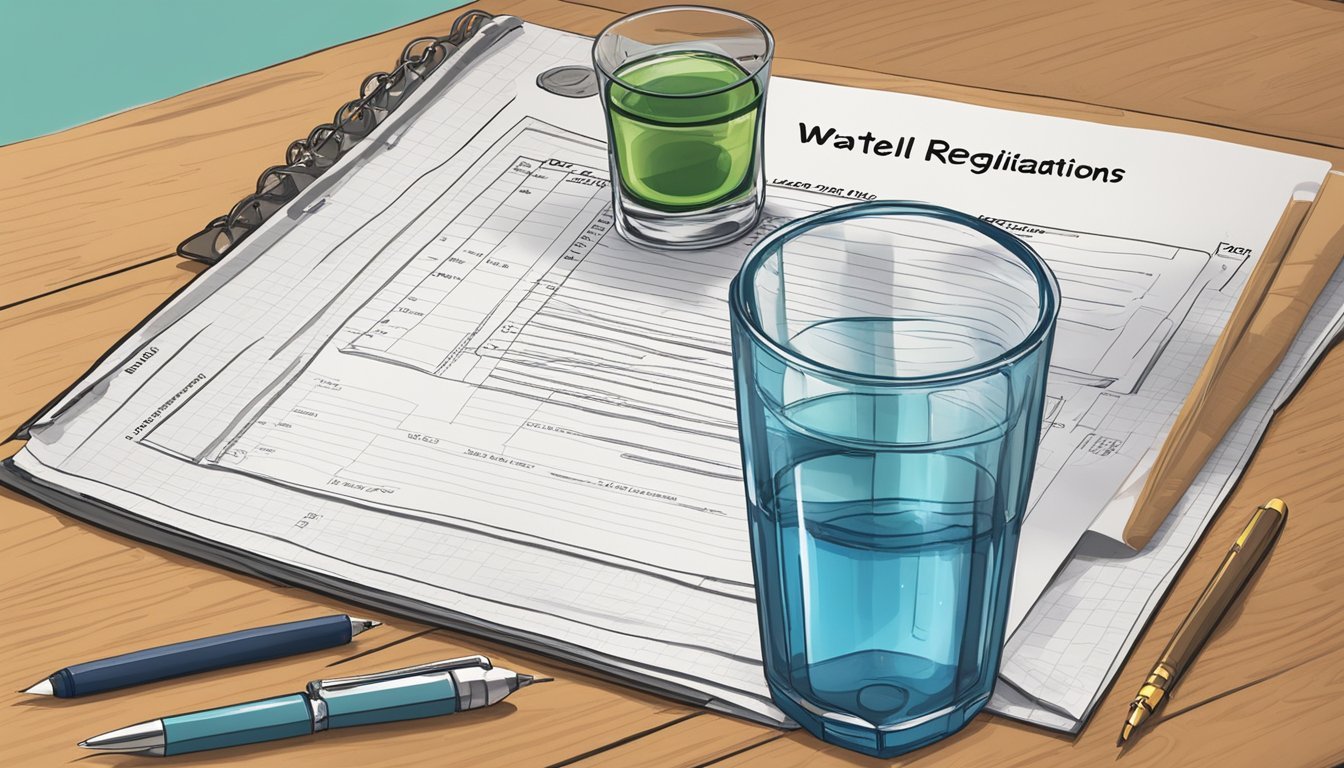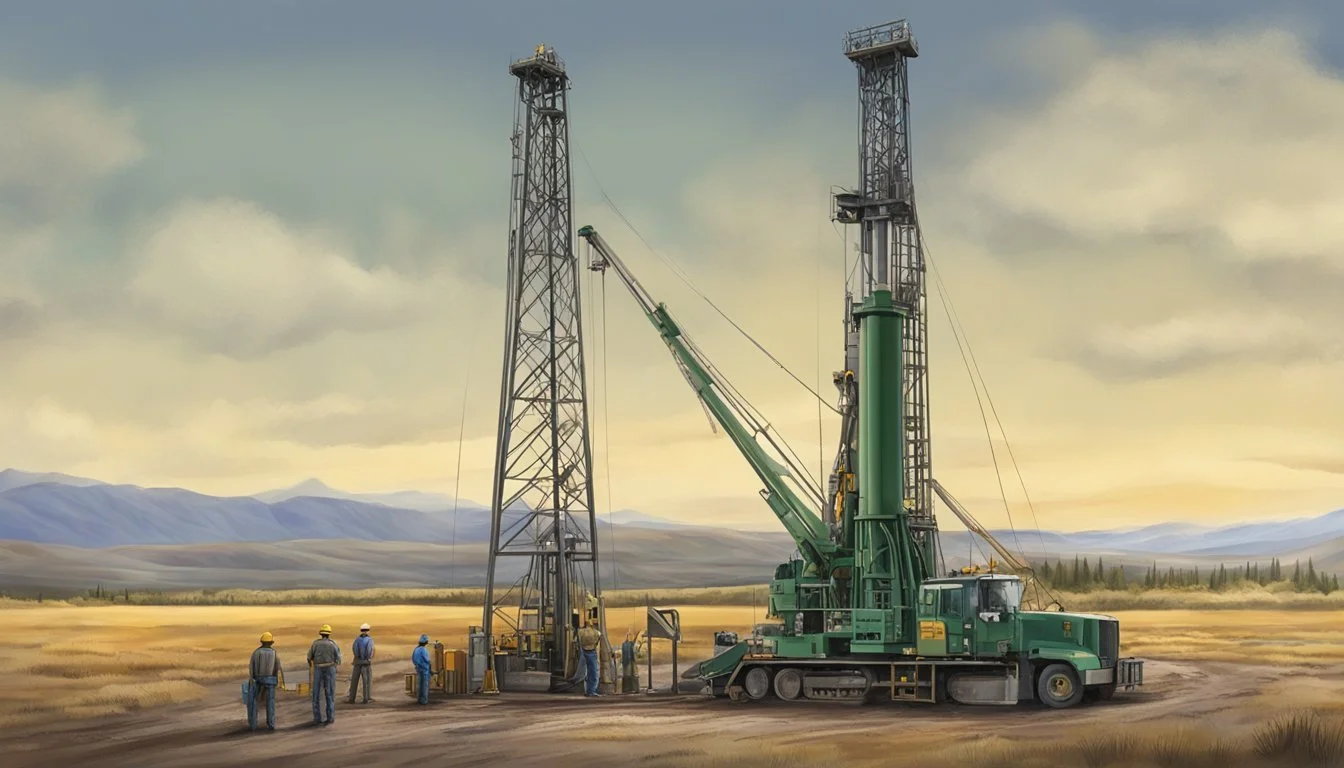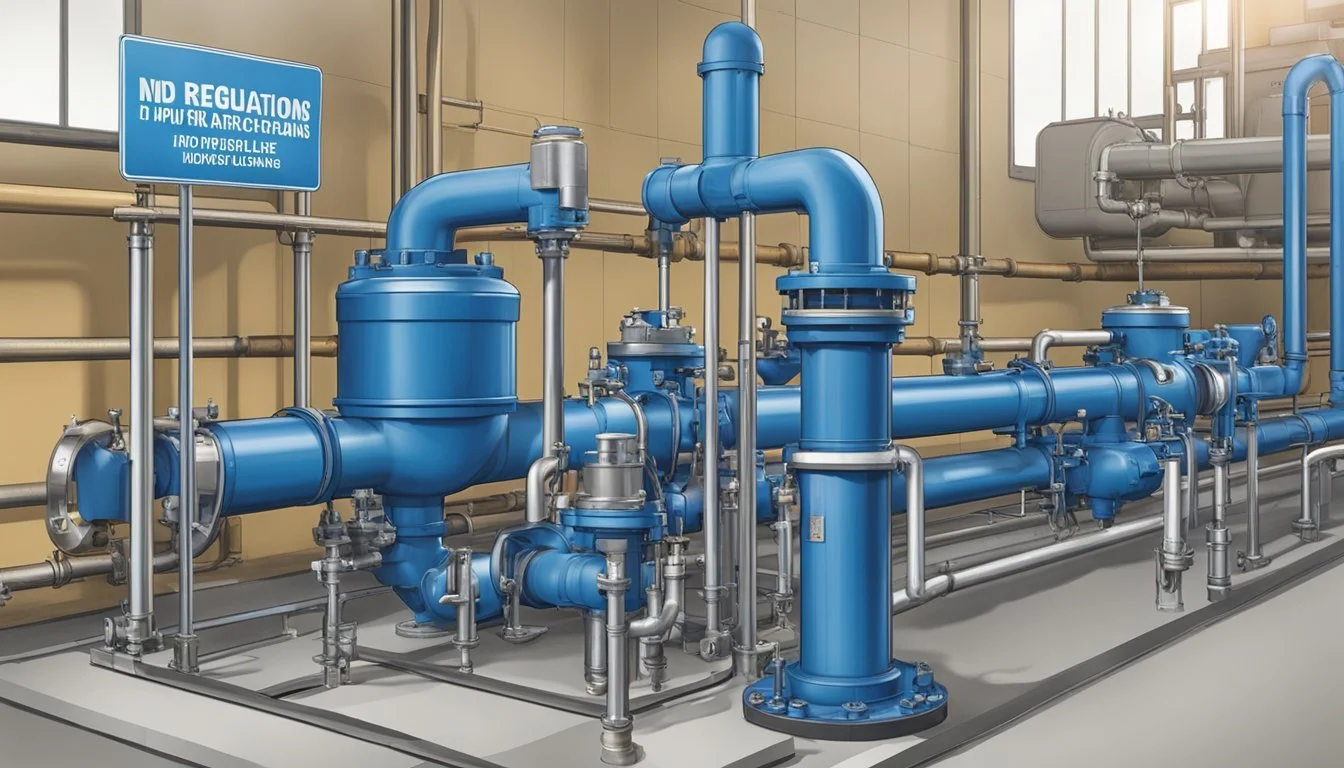Idaho Water Well Regulations
Understanding Compliance for Well Owners
Water well construction and maintenance in Idaho are governed by a set of regulations that ensure the safety and reliability of water resources throughout the state. The Idaho Department of Water Resources (IDWR) holds the statutory authority for overseeing well construction and the licensing of well drillers. It is essential for anyone looking to drill a well to first obtain a drilling permit from the IDWR, and adhere to the established guidelines that are designed to prevent water waste and the contamination of groundwater supplies.
In addition to regulating the construction of new wells, Idaho's policies also cover the modification and decommissioning of existing wells. The state has implemented rules that set forth minimum standards for these processes, with the primary objective of protecting the state's groundwater resources. These rules also facilitate the enforcement of drilling permit fees as dictated by Idaho Code.
The importance of water quality cannot be overstated, and the Idaho Department of Environmental Quality underscores the need for regular testing of private wells. This is particularly crucial for wells used by pregnant women or infants, where the water should be tested for nitrate and bacteria at least once per year. Following these regulations is vital for the wellness of Idaho residents and the stewardship of the state's water resources.
Regulatory Framework
The regulatory framework governing Idaho's water wells is structured to ensure the sustainable management and safety of the state’s groundwater resources. Entities involved, such as the Idaho Department of Water Resources (IDWR), play a crucial role in the administration, permitting, and oversight of water well operations.
Idaho Water Resources Authority
The IDWR has statutory authority over well construction and drilling activities within Idaho. It regulates these activities to preserve groundwater quality and to maintain the public's access to safe drinking water. Under this authority, the department enforces laws and regulations that promote the responsible development of groundwater resources, ensuring they are protected for future generations.
Permitting Process
Prior to drilling, obtaining a drilling permit from the IDWR is mandatory. This process includes submitting a detailed application outlining the proposed well's specifications and its intended use, which might range from servicing a public water system to private domestic use. All permits are designed to reflect a commitment to sustainable water use and the protection of existing water rights.
Operational Standards
Clear operational standards are established by the IDWR, including requirements for the construction, maintenance, and plugging of water wells. Additionally, wells are monitored as part of the Underground Injection Control Program to prevent contamination of drinking water sources. These meticulous rules are in place to guard against over-extraction and to avoid negative impacts on the state’s precious groundwater resources.
Well Construction and Design
In Idaho, well construction and design are governed by rigorous standards to ensure the safety and integrity of groundwater resources. These regulations apply to various well types including geothermal, injection, and standard water wells.
Construction Standards
The Idaho Department of Water Resources mandates that all wells be constructed by licensed drillers who adhere strictly to the state's well construction standards. These standards are devised to prevent water waste and contamination:
Materials: Use of durable materials resistant to corrosion and wear.
Sealing: Adequate sealing around the casing to prevent contaminants from entering the aquifer.
Casing: Proper installation of casings to maintain well integrity.
Design Requirements
For the design of wells, specific criteria must be met, paying close attention to the local hydrogeological conditions:
Depth and Diameter: Determination based on intended use, expected water yield, and the aquifer characteristics.
Screen (if applicable): Selection according to the sediment size to maximize water entry and minimize sediment intrusion.
Inspection and Approval
Upon completion, a well must undergo a thorough inspection process to win approval from the relevant authorities:
Documentation: Submission of detailed construction reports to the IDWR.
Verification: Ensuring all aspects of construction meet or exceed the prescribed standards.
Compliance with these regulations guarantees that the constructed wells are safe and constructed in a manner that protects Idaho's groundwater resources.
Water Quality and Safety
Maintaining the integrity of Idaho's water quality involves constant vigilance to protect against contaminants and ensure that drinking water meets safety standards. This section explores the regulations and measures in place for monitoring contaminants, preventing contamination, and upholding water quality standards.
Contaminants Monitoring
Idaho’s Department of Environmental Quality (DEQ) mandates regular monitoring of public water systems for contaminants such as bacteria, arsenic, and other potential threats to human health. The results of these tests are critical to ensure that the water supplied is safe to drink and free from harmful levels of contaminants.
Preventing Contamination
The prevention of groundwater contamination is a high priority. Accordingly, the Idaho Department of Water Resources outlines stringent rules for well construction and operation. These rules include a requirement for well drillers to obtain a permit prior to drilling, which helps protect against waste and contamination from improperly constructed wells.
Water Quality Standards
Idaho adheres to water quality standards established by the Environmental Protection Agency (EPA). These regulations are designed to limit the presence of hazardous contaminants in drinking water and ensure the safety of the water for all uses—residential, commercial, and recreational.
Water Rights and Usage
In Idaho, the management of water resources is governed by specific laws and regulations intended to maintain a fair and efficient allocation of water rights, regulate groundwater appropriation, and ensure that water usage adheres to state-wide regulations.
Allocation of Water Rights
Water rights in Idaho are based on the doctrine of prior appropriation, where water is allocated to users with the oldest claims taking precedence. To establish a water right, one must apply the water to beneficial use and follow the state's legal framework. In cases of water scarcity, holders of senior water rights receive water first, while junior rights holders may receive less or no water.
Groundwater Appropriation
Groundwater in Idaho is subject to appropriation similar to surface water. The Idaho Department of Water Resources manages the appropriation of groundwater rights, ensuring that new appropriations do not impair existing rights or the long-term sustainability of the aquifers. They also oversee Critical Groundwater Areas where withdrawals must be carefully monitored and managed due to limited recharge capacities.
Water Usage Regulations
Strict regulations govern water usage in Idaho. Users must adhere to the terms of their water rights, which define the nature, purpose, quantity, and period of use. The state has established rules for different types of water usage, like irrigation, domestic, and industrial. Compliance with these rules is essential to prevent the overextension of water resources and to safeguard the interests of all users. The Idaho Department of Water Resources has the authority to administer these rules and can enforce restrictions to protect the state’s water resources.
Well Maintenance and Operation
Proper maintenance and operation of wells in Idaho are crucial for ensuring a safe and reliable water supply to the public, communities, and schools. Adherence to state regulations guarantees that domestic wells and public water systems operate effectively.
Routine Maintenance
Operators of both domestic wells and public water systems must perform regular checks to safeguard the integrity of their wells. They must:
Inspect wellheads to confirm that seals remain intact and that there are no unauthorized modifications.
Test water quality periodically to comply with the Idaho Department of Environmental Quality standards.
Maintain accurate records of maintenance activities, ensuring that any signs of wear or contamination are promptly addressed.
Operational Requirements
Public water systems and domestic well operators are required to adhere to specific operational standards. They must ensure:
Properly functioning security measures are in place to prevent unauthorized access or tampering with the well.
Consistent water pressure levels to serve the needs of a community, public drinking water systems, or a school.
Compliance with Idaho Department of Water Resources drilling permit regulations prior to the modification or creation of a well.
Emergency Protocols
In the event of a contamination or a system failure, operators have to initiate emergency protocols, which include:
An immediate notification to the relevant authorities such as the Idaho Department of Environmental Quality.
Steps to isolate and rectify the issue to prevent further impact on the water supply.
Notification to the public and other stakeholders in line with Idaho's guidelines to maintain transparent communication during the incident.
Each measure aims to restore safe, potable water to all affected parties with minimal delay.
Abandonment and Decommissioning
The abandonment and decommissioning of wells in Idaho are critical processes governed by regulations to ensure environmental safety and resource management. These procedures are in place to prevent groundwater contamination and preserve the integrity of the state's water resources.
Procedures and Guidelines
Abandonment of a well requires adherence to the Idaho Department of Water Resources’ rules that mandate a comprehensive approach to the plugging and securing of wells no longer in service. The Well Construction Standards Rules outline that well decommissioning must be conducted in a manner that prevents the movement of water between aquifers or surface water into aquifers.
Private well owners should be aware of their responsibilities, which include hiring a licensed driller for the decommissioning process. Procedures must follow the guidelines that encompass the use of appropriate plugging materials and methods to avoid creating a channel for potential contaminants.
Ensure well is properly cleaned out before plugging
Select plugging material that prevents seepage
Thoroughly seal well from bottom to top
Post-Abandonment Responsibilities
After a well has been decommissioned, the well owner maintains certain ongoing responsibilities. These duties are established to uphold the safety of the groundwater and surrounding environment. The Idaho Department of Water Resources emphasizes proper record-keeping and reporting of the decommissioning work to the state.
File a report detailing the decommissioning with IDWR
Monitor the decommissioned site for any sign of contamination leakage
The Environmental Protection Agency supports these local regulations with broader guidelines to protect the nation's water resources. Consistency in post-abandonment monitoring ensures that Idaho's aquifers remain uncontaminated and safe for future use.
Stakeholder Engagement and Information
Effective management of Idaho’s water resources relies heavily on proactive engagement with key stakeholders, such as the community, well owners, and educational institutions. Meaningful participation and dissemination of pertinent information are vital for maintaining the quality and sustainability of the state's water wells.
Community Involvement
Communities play a crucial role in the oversight of water well regulations in Idaho. They are encouraged to participate in public hearings and consultations, which are avenues for expressing concerns and contributing to decision-making processes. The Idaho Department of Water Resources often sends notices via email or posts them on their website to inform communities about upcoming events or changes in water management policies.
Education and Resources for Well Owners
It is essential for well owners to have access to accurate and up-to-date information regarding well construction, maintenance, and regulation compliance. The Idaho Department of Water Resources provides a suite of educational materials and resources on their website that explain the critical aspects of well ownership, including licensing, drilling permits, and construction requirements. This empowers well owners with the knowledge to responsibly manage their water wells.
Reporting and Communication
Transparent reporting and clear communication channels between stakeholders are integral. The Idaho Department of Environmental Quality facilitates this by offering guidance on water quality monitoring and reporting protocols for public water system supply wells, which include those operated by entities such as schools. They provide resources and instruction on how well owners can report their findings or issues, which can be accessed on their portal. Effective communication ensures that well owners, regulatory bodies, and the community remain informed and engaged in the protection and conservation of Idaho’s groundwater resources.
Frequently Asked Questions
In Idaho, water well regulations are governed by specific state requirements. These rules ensure the responsible management and protection of the state's groundwater resources.
What are the requirements for obtaining a water well permit in Idaho?
Individuals must obtain a drilling permit from the Idaho Department of Water Resources before constructing a well. The permitting process includes submitting appropriate documentation and adherence to state-wide rules for well construction.
How do I conduct a well water quality test in Idaho?
Well owners in Idaho are encouraged to periodically test their water quality. Information and assistance can be found through the Idaho Department of Environmental Quality, which provides guidelines on how to sample water and where to send samples for analysis.
What are the minimum property line setbacks for water wells in Idaho?
The state of Idaho mandates minimum setbacks to protect water wells from contamination. These setbacks are clearly outlined in the state's well construction standards, which can be found in detail in the administrative rules provided by the state.
What changes were made to the Idaho water well regulations in recent years?
Recent modifications to Idaho water well regulations can be found by visiting the Idaho Department of Water Resources News Page. The site provides information on updates, such as new policies, guidelines, and ongoing rulemaking that affect well construction and groundwater management.
How can I access Idaho water well log reports?
To access water well log reports in Idaho, individuals can navigate to the Idaho Department of Water Resources' website, which hosts a database where well logs are recorded and made available for public review.
What is the process to search for water well permits in Idaho?
Searching for water well permits in Idaho can be done through the Idaho Department of Water Resources. Their online portal provides a robust search tool that allows users to query existing well permits by various criteria.








